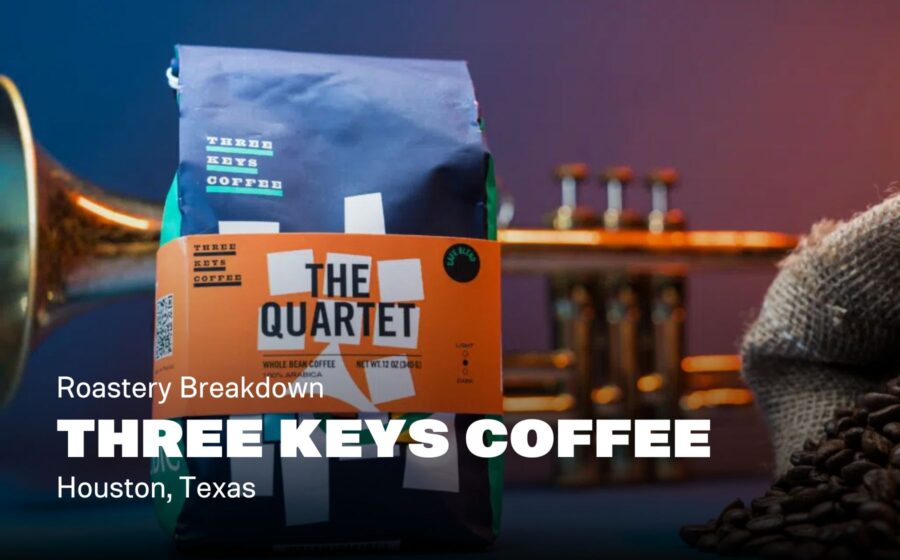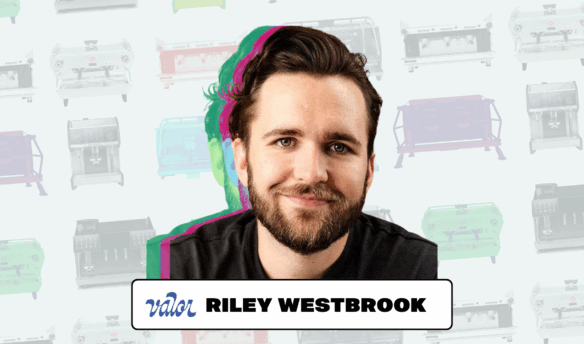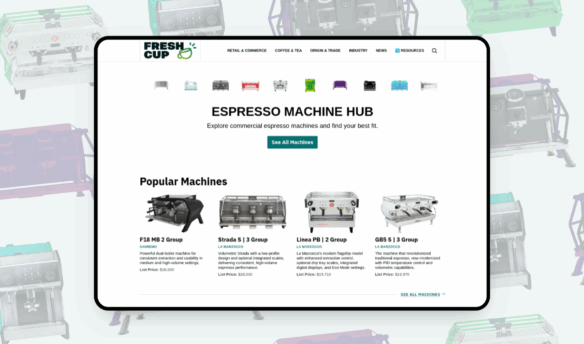The Roastery Breakdown series is presented by our partner, Loring.
Tio Fallen first learned about coffee roasting from a stranger at a watch-making class. He could have never imagined that what started as a hobby would evolve into an award-winning coffee roastery.
A year after the watch class, he decided to pick up roasting as a hobby. He’d sign up for classes locally in Houston and roast coffee at home in his spare time.
Quickly, Tio and his co-owner and wife, Kenzel, realized there was a dearth of local specialty coffee roasters in Houston compared to other major US cities. So the couple set upon their mission to create an “approachable, inclusive coffee experience,” said Kenzel, that “celebrates creativity.”
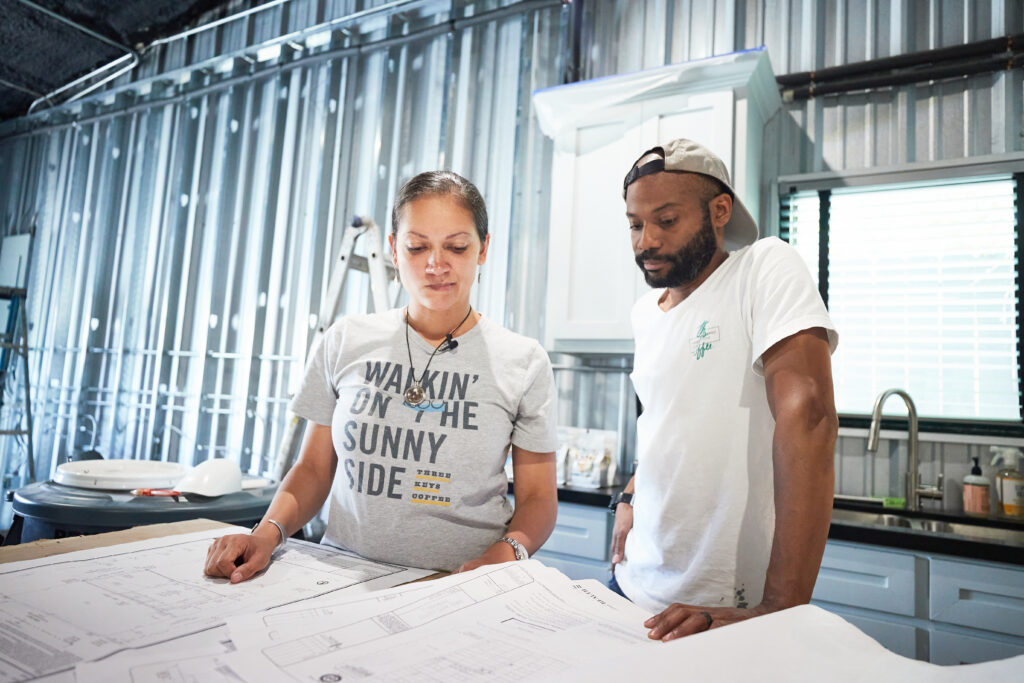
Kenzel and Tio started Three Keys Coffee in 2019, building the business from the ground up. Tio describes the roastery as a “bootstrap operation,” but once the duo caught the coffee bug, they knew this was a pathway they had to pursue. To Tio, Three Keys is an illustration of what “going all in” and “dedication to what you want” can accomplish. The pair are particularly invested in introducing specialty coffee to demographics that historically have not had adequate access.
Named for the three valves on a trumpet, Three Keys weaves music and art into all their coffees. Blends are named after famous musicians, and the duo developed a coffee-tasting guide that uses musical references to give drinkers a multi-sensory experience—delicate and bright coffees feel like Ella Fitzgerald; textured and layered cups harken Miles Davis.
Each bag includes a description of the vibe coffee is meant to evoke, along with an accompanying song or Spotify playlist. Drinkers are meant to experience the musings of a smooth Jazz ensemble with each sip. “For example, the Fallens named one of their coffees (a single origin offering from Guatemala) Ghost Note, a music term that refers to a “muted note, played softly between main notes,” their website says. “Like its name, the flavor notes of this light roast are subtle yet spirited. Therein lies the beauty of the ‘Ghost’ note.”
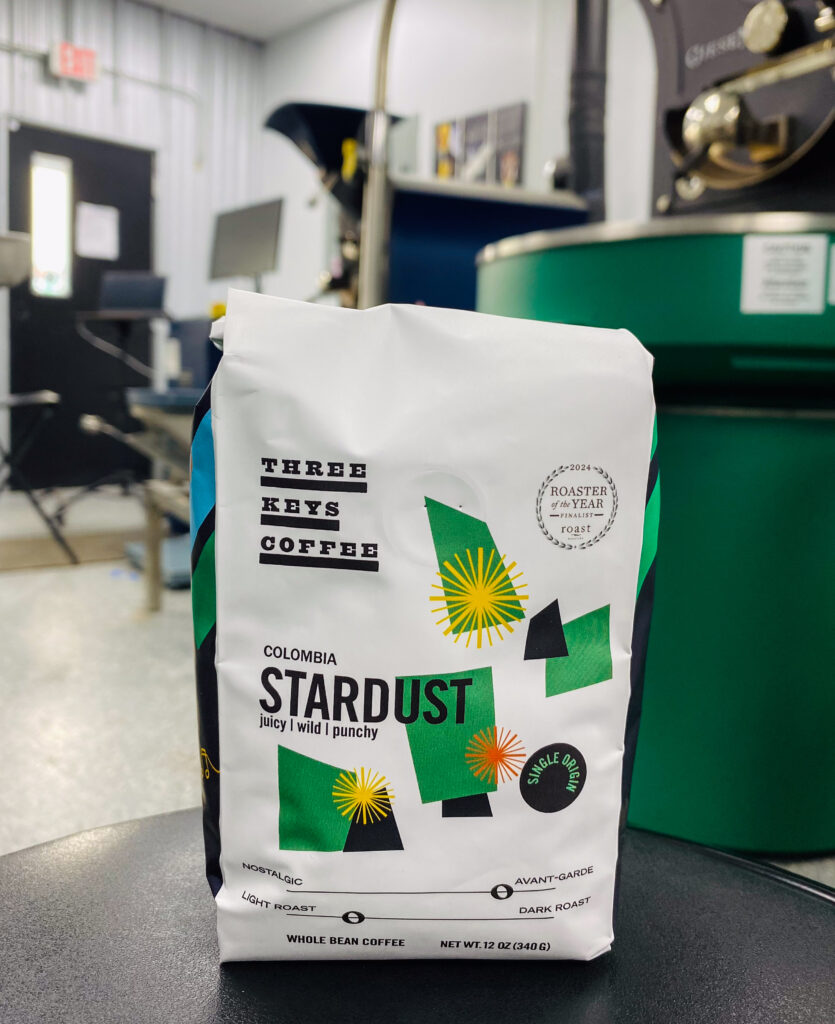
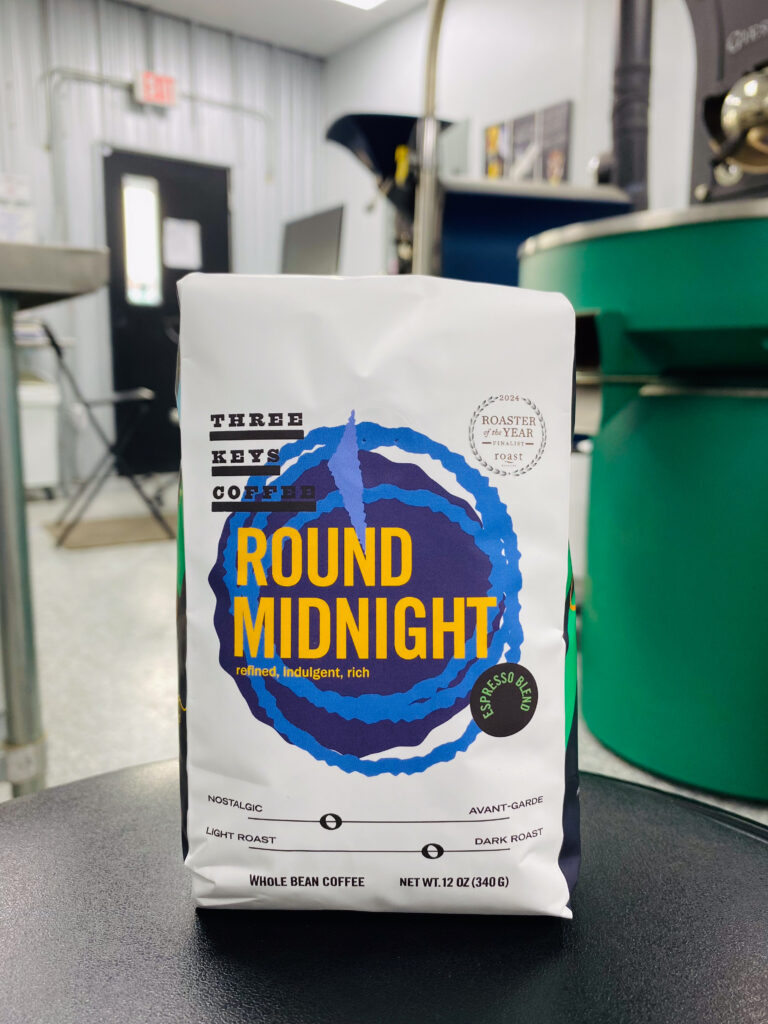
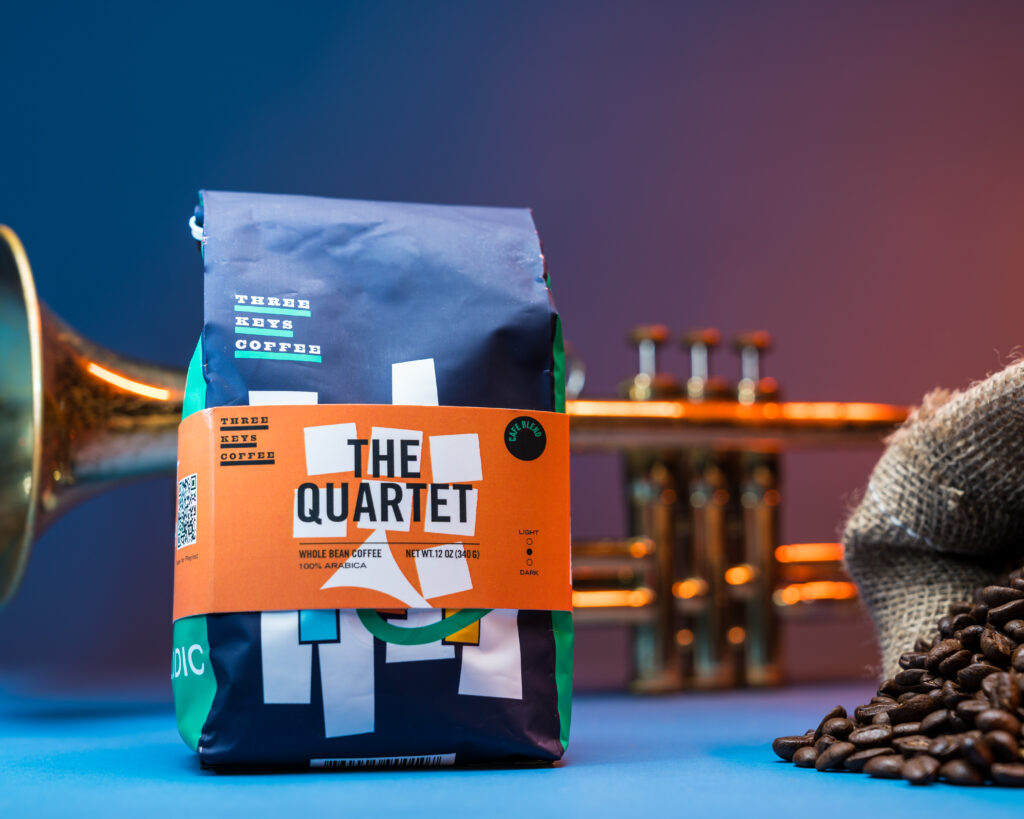
Tio and Kenzel moved into a permanent roasting space in 2022, the same year they were named by Food & Wine as the best coffee roaster in Texas. Tio considers their public roasting space a “hidden gem” in Houston’s South Side neighborhood, a quiet part of town he says is “often overlooked.”
Three Keys is every bit as much a coffee brand as it is an ideology. The couple encourages team members to openly share ideas and tries to honor what each person brings to the table.
As Tio and Kenzel sat down to be interviewed for this series, musing about what Three Keys represents, Kenzel abruptly stopped talking and turned to her right. She asked, “Finish the sentence: The Mission of Three Keys is to…”
Off-camera, an employee yells back: “To integrate jazz, coffee, and culture all in one palatable, expansive brand.”
Fast Facts
Roastery Location: A converted warehouse in Houston’s South Side neighborhood, close to the University of Houston’s main campus
Square Footage: 1500 square feet, with a 300 square foot garage
Pounds Roasted: 350 lbs/week
Retail and/or wholesale roasting: Both
A Level of Control
Early in the current COVID-19 pandemic, Tio decided to withdraw money from his savings and invest in roasting equipment. He first purchased an Ikawa Sample Roaster and a Giesen W6 after becoming enamored with the level of control and development of aromatic coffee profiles enabled by Giesen roasters.
“Tio selected Giesen for the unique flavor profile their machines create, attributed to their cast iron materials,” shared Kenzel over email. “They also have functionality and controls not typically found on other drum roasters, such as drum speed, pressure, and environmental temperature controls.”
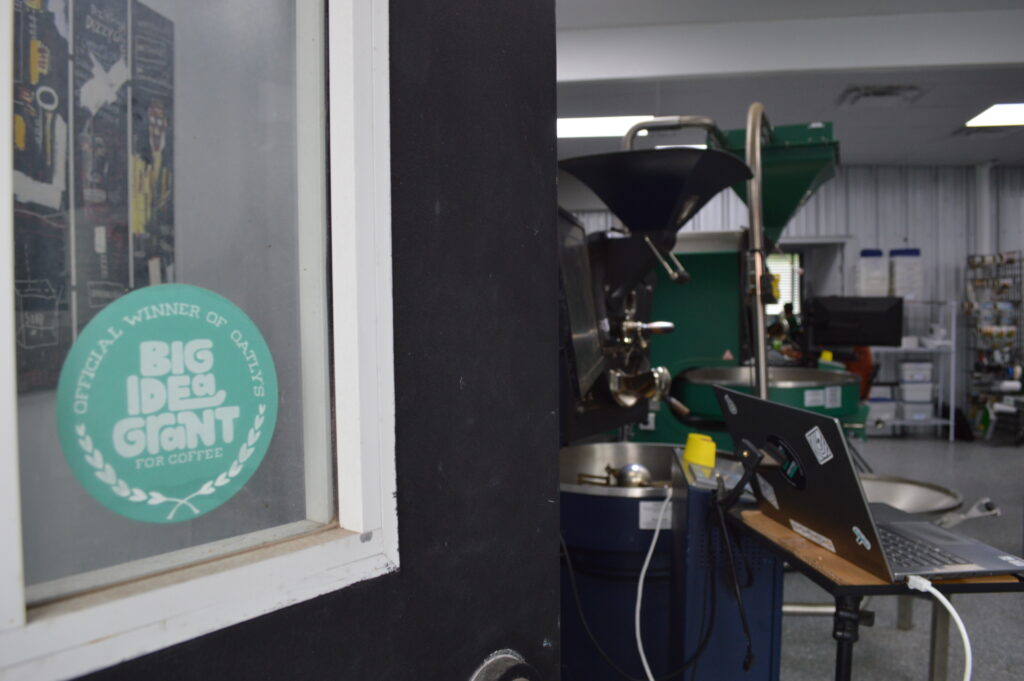
To start, the team set up their equipment and roasted out of a communal kitchen at a local church.
As Three Keys’ operation outgrew the kitchen, the team similarly outgrew their roasting equipment. They added a Giesen W15 to the lineup to allow for larger batch sizes and quicker production speeds.
“Our roast schedule has shifted a lot over the years,” Kenzel says. “As our team has grown, we have shifted to a more traditional daytime work-week schedule.”
At Three Keys, however, production speed is only one factor in deciding a roasting schedule. As always, Kenzel and Tio maintain that improving the employee experience and ongoing learning opportunities are central to their business’ mission. “We actually recently shifted the schedule again to give senior staff a four-day work week and free up more time to use the space for training,” says Kenzel, “with us launching an inaugural Roaster Training Cohort of six trainees this summer.”
Optimizing the Employee Experience
The Three Keys team is constantly seeking ways to optimize workflow. Kenzel and Tio want everyone’s jobs to be as seamless as possible and place a high value on employee feedback to figure out what works best for the team.
When Three Keys first moved its permanent roasting space, Tio admits they prioritized speed over thoughtfulness. “At first, we were just trying to get up and running to operate out of the space,” Tio says. “It was pragmatic. It was not super thoughtful, and it was rushed.”
As they settled into their new space, the team took a step back to consider not only how to make their production line more efficient but also how to ease the physical strain roasting and production put onto employees. This is heavily reflected in their choice of tools and equipment.
Vacuum system with built-in destoner: Before adding the vacuum, employees had to climb a ladder to load the roaster with green coffee. Wanting to find a safer solution, the Fallens implemented this system to reduce the physical strain of production.
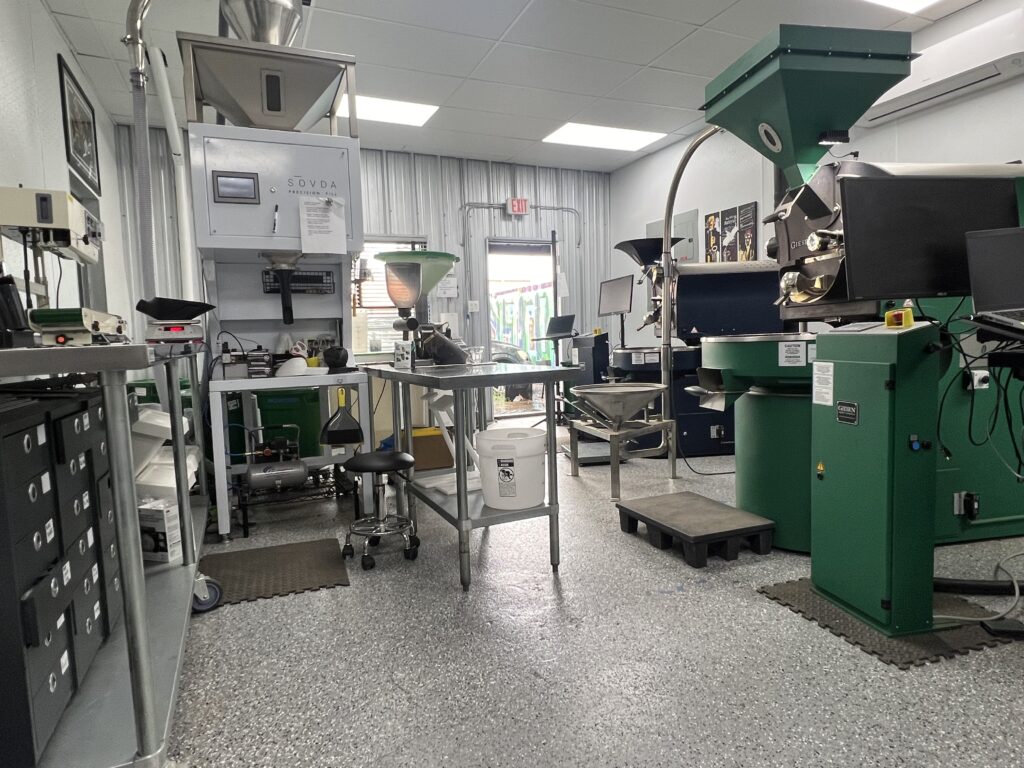
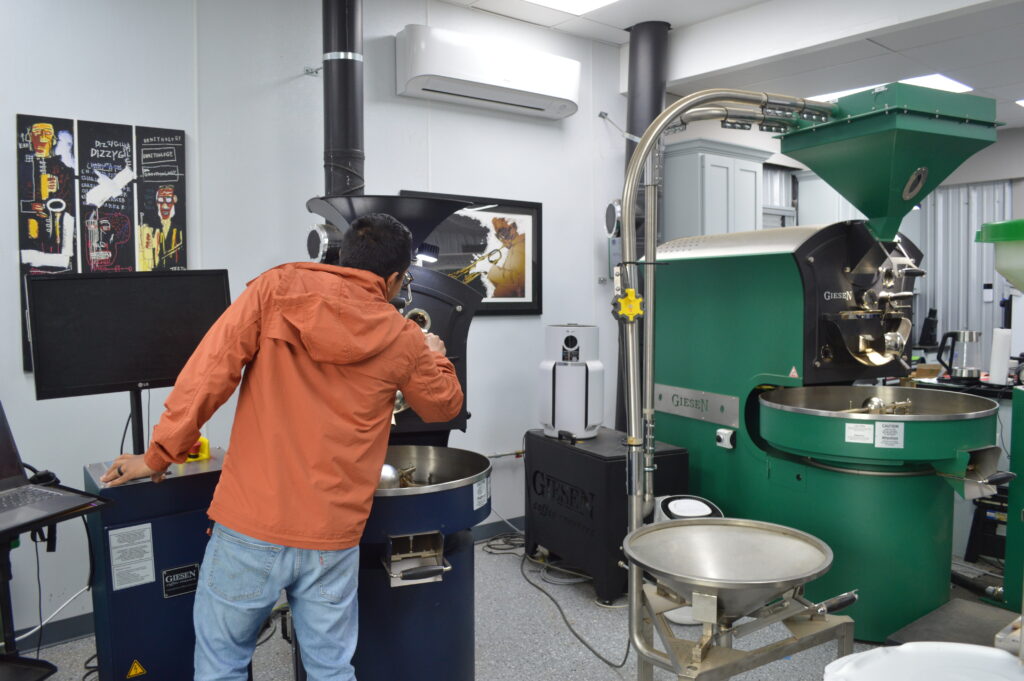
The vacuum system is actually two set ups, according to Billy Martinez, a roaster for Three Keys. A vacuum, made by Giesen, first loads coffee into the W15 roaster. “While it’s vacuuming up the coffee, it also filters out green coffee dust (which can be a huge nuisance in the roasting profession, causing many roasters to go into sneezing fits),” Martinez says.
The second vacuum loads roasted coffee to the top of the Sōvda (see below) to prepare for packaging, but it also acts as a destoner. “While it is vacuuming up the coffee,” says Martinez, “it uses the properties of the coffee’s low density to also siphon away stones from the roasted coffee as it loads the coffee onto the Sōvda.”
Sōvda bagging machine: Three Keys’ coffee bagging machine is fast, efficient, and “kind of fun,” according to Three Keys employees. One said using the Sōvda, a weight-based dispenser that can fill 6-8 bags of coffee per minute, feels like using “production packaging from the future! It makes weighing and filling those 5lb orders a breeze.”
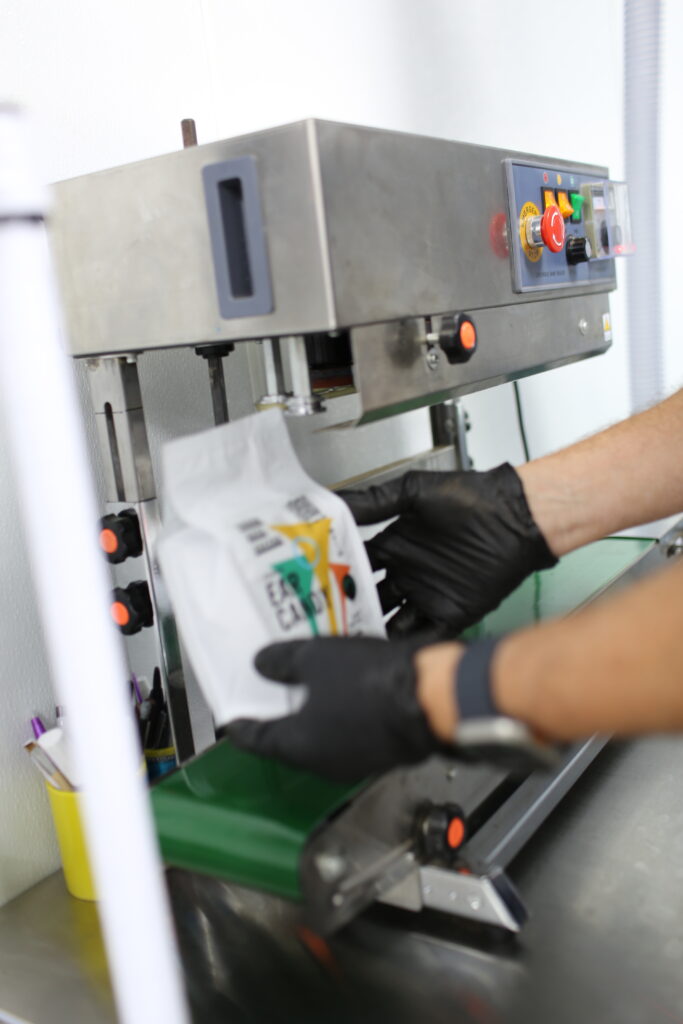
Ohaus scale: This industrial scale is a “workhorse, built Ford-tough,” shared the Three Keys team in a collaborative document delivered by email. They especially love that it allows for easy toggling between grams and ounces.
Acaia Orion bean doser: Three Keys fills and sells thousands of retail bags each month. By using a bean doser, the team can ensure weight consistency across every bag they sell.
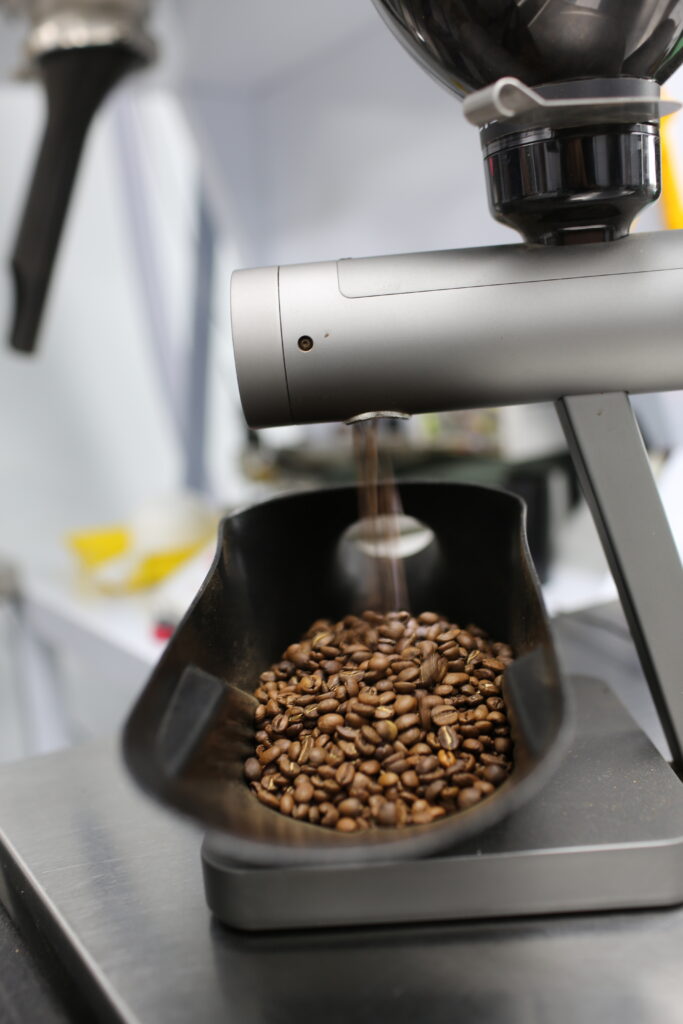
Plastic Bins: The team uses multi-use plastic bins to store coffee before and after each production stage. The bins are used to receive green coffee, store destoned and roasted coffee, and to prep batches for roasting.
Magnetic Expo markers: At Three Keys, everything gets labeled. Organization is key to the efficiency and organization of their production line.
3KC Jazz and Coffee Notes Wheel: Provides décor and inspiration as the team cups coffee, roasts, and makes purchasing decisions.
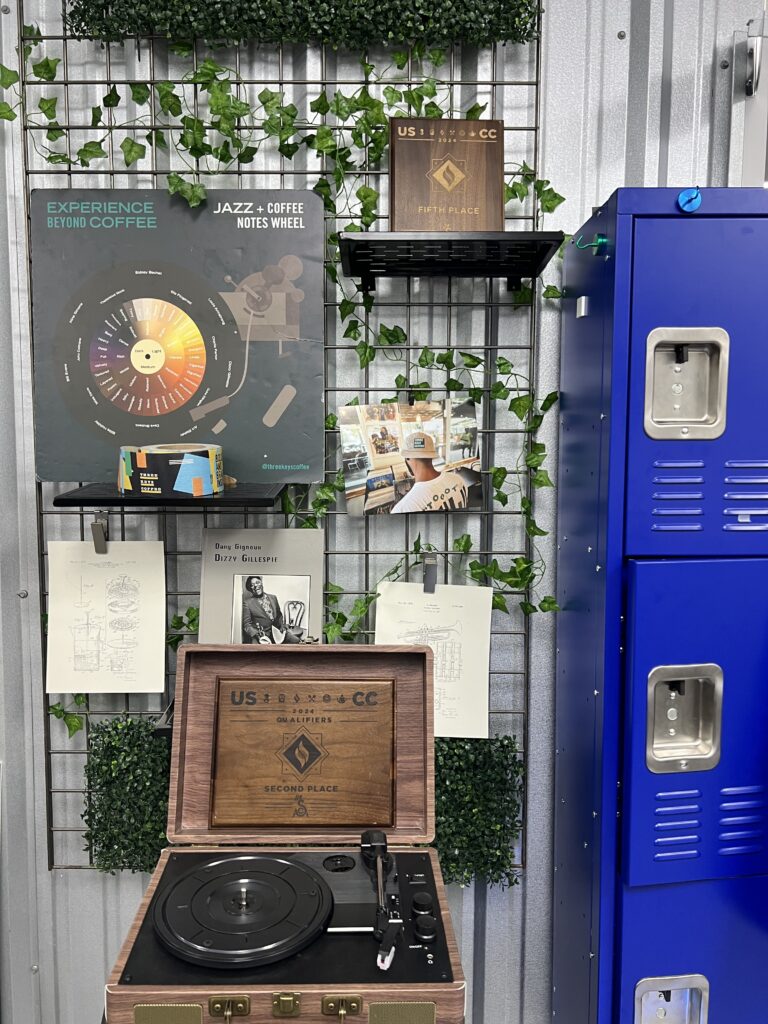
For the Fallens, Three Keys is more than a coffee roastery—and more than a space to play with the senses and explore coffee through music. “[We’re here] to empower people through coffee,” says Tio. “To be in service to the community through coffee. To be a conduit to connect with Houston in a meaningful way and to cultivate a cohort of people in this industry who can have this influence as well.”
While Tio and Kenzel built Three Keys on their own, they hope other aspiring coffee professionals don’t have to do the same. Central to Three Keys’ mission is the open flow of coffee and information. By pouring back into the community and their team, the Fallens hope to equip their people with the tools and resources they need to achieve their personal and professional goals.



